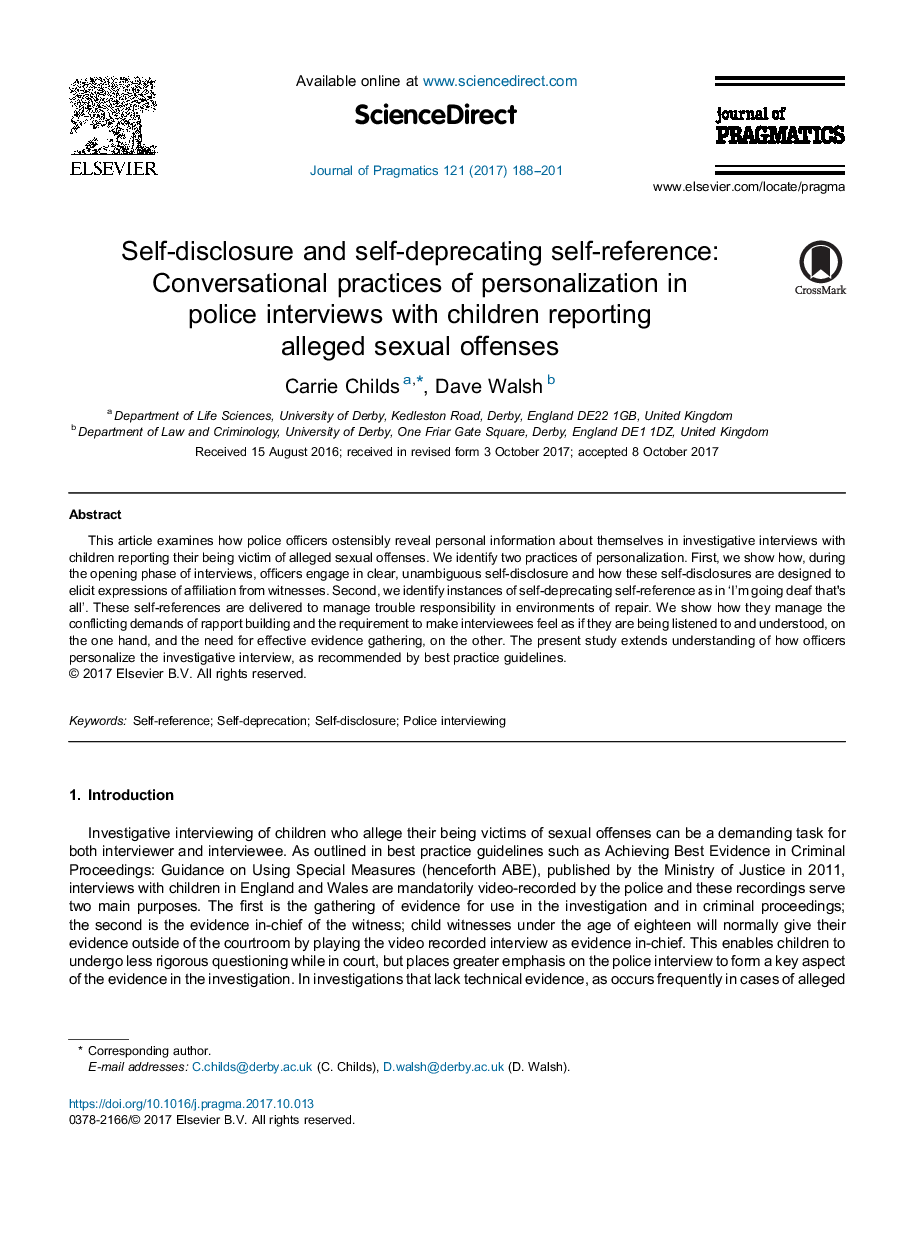| Article ID | Journal | Published Year | Pages | File Type |
|---|---|---|---|---|
| 7297778 | Journal of Pragmatics | 2017 | 14 Pages |
Abstract
This article examines how police officers ostensibly reveal personal information about themselves in investigative interviews with children reporting their being victim of alleged sexual offenses. We identify two practices of personalization. First, we show how, during the opening phase of interviews, officers engage in clear, unambiguous self-disclosure and how these self-disclosures are designed to elicit expressions of affiliation from witnesses. Second, we identify instances of self-deprecating self-reference as in 'I'm going deaf that's all'. These self-references are delivered to manage trouble responsibility in environments of repair. We show how they manage the conflicting demands of rapport building and the requirement to make interviewees feel as if they are being listened to and understood, on the one hand, and the need for effective evidence gathering, on the other. The present study extends understanding of how officers personalize the investigative interview, as recommended by best practice guidelines.
Keywords
Related Topics
Social Sciences and Humanities
Arts and Humanities
Language and Linguistics
Authors
Carrie Childs, Dave Walsh,
